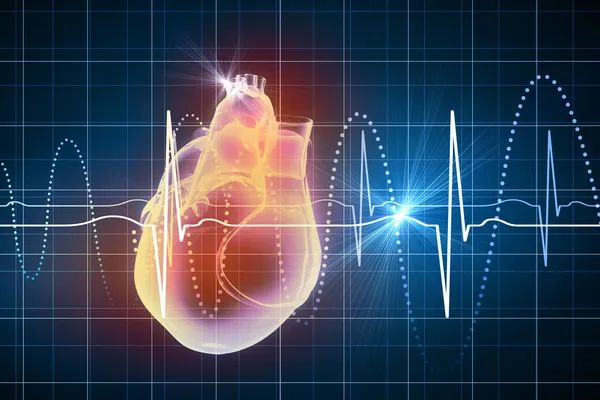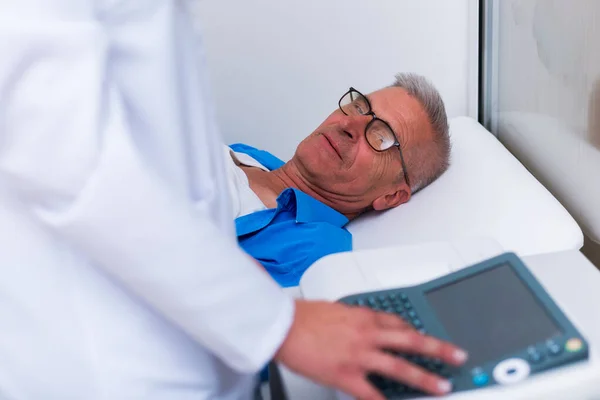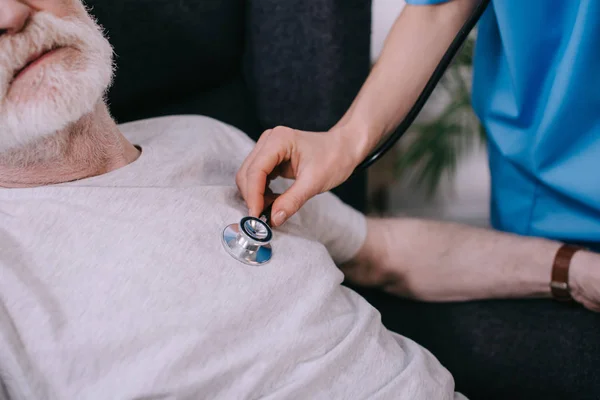Heart rate, a vital sign of overall health, varies depending on a range of factors including activity level, stress, and health status. But when illness strikes, it often leads to a high heart rate when sick, a condition that can be both a natural response and a sign of complications. In this article, we’ll explore the causes and concerns surrounding a high heart rate when sick, helping you understand when this symptom may require attention and how to manage it effectively.
What is Heart Rate?

Heart rate is the number of times your heart beats per minute (bpm), serving as a crucial indicator of your circulatory health. A normal resting heart rate for adults ranges from 60 to 100 bpm. Factors influencing heart rate include age, fitness level, air temperature, body position, emotions, and body size.
How to Measure Your Heart Rate Accurately
To measure your heart rate, you can:
- Use the wrist: Place your index and middle fingers on your wrist, just below the base of the thumb. Feel the pulse with a light press.
- Use the neck: Place your fingers on the side of your neck, just under the jawline. Press lightly to locate the pulse.
- Use technology: Devices such as smartwatches and heart rate monitors can provide an accurate and continuous reading.
This accurate measurement is crucial, especially when monitoring for a high heart rate when sick
What Qualifies as a High Heart Rate (Tachycardia)?
Tachycardia, the medical term for a high heart rate when sick, is typically defined as a resting heart rate over 100 bpm. This condition can vary based on several factors, including:
- Age-related differences: Younger people may naturally have faster heart rates.
- Health status: Individuals with certain cardiovascular conditions may experience higher normal rates.
Normal Heart Rate Ranges vs. High Rates
Here’s a comparison to illustrate normal versus high heart rates:
- Newborns (0-3 months old): Normal is 100-150 bpm; high is above 150 bpm.
- Infants (3-6 months old): Normal is 90-120 bpm; high is above 120 bpm.
- Children (1-10 years): Normal is 70-120 bpm; high is above 120 bpm.
- Adults: Normal is 60-100 bpm; high is above 100 bpm.
Understanding these distinctions is crucial when monitoring for a high heart rate when sick.
Common Causes of High Heart Rate When Sick

1.Infections and Body’s Response
When fighting an infection, the body naturally increases heart rate to boost metabolism and temperature, facilitating a faster immune response. Common illnesses that can cause a high heart rate when sick include:
- Flu: High fever and inflammation can significantly speed up the heart.
- COVID-19: Alongside fever, respiratory distress can elevate heart rate.
- Common colds: Even mild infections can temporarily raise the heart rate.
2.Fever’s Impact on Heart Rate
Fever increases heart rate by about 10 bpm for every degree Celsius in body temperature rise, impacting cardiovascular functions significantly. This is a critical response mechanism during illness.
3.Dehydration Effects
Dehydration reduces blood volume, making the heart work harder to circulate oxygen, thus increasing heart rate. Key signs include:
- Thirst
- Reduced urination
- Dry skin
4.Stress from Illness
Being sick can induce stress and anxiety, which activate the body’s sympathetic nervous system, further increasing heart rate. Managing stress is vital for controlling heart rate during illness.
5.Medicinal Influences
Certain medications used to treat illnesses can also raise heart rate, including:
- Decongestants: Often found in over-the-counter cold remedies.
- Beta-agonists: Commonly used in asthma treatment.
Understanding these factors is essential when dealing with a high heart rate when sick
Symptoms to Watch Alongside High Heart Rate When Sick
Identifying accompanying symptoms is crucial to determine whether a high heart rate indicates a serious underlying issue. Key symptoms to monitor include:
- Shortness of breath: Difficulty breathing can signal cardiovascular or respiratory issues.
- Chest pain or discomfort: This could indicate a heart attack or other cardiac conditions.
- Extreme fatigue: More than usual tiredness can suggest complications.
- Dizziness or lightheadedness: These symptoms may show poor blood circulation.
When is a High Heart Rate When Sick a Sign of Something More Severe?
A high heart rate becomes a concern when accompanied by:
- Persistent symptoms are ones that don’t go away or get worse with time.
- Severe symptoms: Intense chest pain, severe shortness of breath, fainting.
- Other risk factors: Pre-existing heart conditions, diabetes, or high blood pressure.
It’s important to recognize these signs early to seek appropriate medical care for a high heart rate when sick.
Checking Your Heart Rate
Monitoring your heart rate effectively is crucial, especially when dealing with symptoms of illness. Here’s how to keep track:
Step-by-Step Guide on Measuring Your Heart Rate
- Find a quiet place: Minimize external factors that could affect your reading.
- Choose your method: Use your wrist, neck, or a digital device for more accurate results.
- Time your pulse: Count the beats for 15 seconds and multiply by four to get beats per minute.
- Record your results: Keeping a log can help track changes and trends over time.
Tools and Apps That Can Help Track Heart Rate
Several digital tools can assist in monitoring your heart rate:
- Smartwatches and fitness trackers: Devices like Apple Watch or Fitbit provide continuous heart rate monitoring.
- Heart rate apps: Apps such as HeartRate+ and Cardiio use your smartphone’s camera to measure your pulse.
Regular tracking is beneficial, especially if you notice a persistent high heart rate when sick.
Treatment and Management of High Heart Rate
Home Remedies and Lifestyle Changes to Manage High Heart Rate When Sick
Several non-medical approaches can help manage your heart rate:
- Stay hydrated: Drink plenty of fluids to prevent dehydration.
- Rest: Get enough sleep to enable your body to heal.
- Stress management: Techniques like meditation and deep breathing can reduce stress-induced heart rate increases.
Medical Treatments Available for Managing Heart Rate During Sickness
When home remedies are not enough, medical intervention may be necessary:
- Beta-blockers: Medications that can slow the heart rate and improve heart function.
- Electrolyte management: Supplements or IV fluids to balance electrolytes that affect heart rhythm.
Adopting these strategies can aid in controlling a high heart rate when sick and prevent further complications.
Preventive Measures
Taking steps to prevent illness can also help avoid complications like a high heart rate when sick. Here are practical tips to strengthen your health defenses:
Tips on Preventing Illness to Avoid High Heart Rate When Sick
- Maintain a healthy diet: Nutrient-rich foods bolster the immune system.
- Exercise regularly: Keeping physically active enhances cardiovascular health.
- Wash hands frequently: Reduces the risk of contracting infections.
Importance of Vaccinations and Regular Health Check-Ups
Vaccinations play a critical role in preventing diseases that can cause an increased heart rate. Regular health check-ups help identify and mitigate potential health issues before they lead to serious conditions.
Implementing these preventive strategies is key to maintaining a healthy heart rate and overall well-being.
When to See a Doctor

Understanding when to seek medical attention for a high heart rate when sick is crucial for preventing severe health outcomes. Here are some guidelines:
Guidelines on When a High Heart Rate When Sick Requires Medical Attention
- Persistent high heart rate: If your heart rate stays high without improvement.
- Accompanied by severe symptoms: Such as chest pain, shortness of breath, or fainting.
- Underlying health conditions: Especially if you have known heart issues or other serious health concerns.
What to Expect During a Medical Consultation for High Heart Rate
During your visit, the doctor might:
- Review your medical history: To identify any underlying conditions.
- Conduct a physical examination: Checking for signs that may indicate the cause of the high heart rate.
- Order diagnostic tests: Such as EKGs or blood tests to further investigate the symptoms.
Seeking timely medical advice is essential for managing a high heart rate when sick effectively.
FAQs About High Heart Rate When Sick
Common Questions About High Heart Rate When Sick
- Is it normal for my heart rate to increase when I have a fever?
- Yes, it’s a common response for the heart rate to increase to help the body fight off infection.
- Can dehydration really affect my heart rate?
- Absolutely, dehydration decreases blood volume, requiring the heart to pump faster to maintain blood flow.
- What should I do if my heart rate is high and I feel dizzy?
- Lie down or sit and drink water if possible, and seek medical attention if the condition persists.
- How can stress from illness increase my heart rate?
- Stress activates the body’s sympathetic nervous system, which can increase heart rate as part of the “fight or flight” response.
Including these questions helps in building a comprehensive understanding for readers concerned about a high heart rate when sick.
Conclusion
Throughout this article, we’ve explored various aspects of managing and understanding a high heart rate when sick, from identifying causes and symptoms to adopting preventive measures and seeking medical advice. Key takeaways include:
- Recognizing what qualifies as a high heart rate and the normal ranges for different age groups.
- Understanding the common causes, like infections, fever, dehydration, and stress.
- Knowing when to consult a doctor based on the severity and persistence of symptoms.
It’s important for individuals to monitor their heart rate and be aware of the factors that could lead to increases, particularly during illness, to manage health proactively and effectively.
See Also:
-
5 Proven Strategies to Combat Broken Blood Vessels on Face: Essential Tips for Flawless Skin
-
Understanding Blurred Vision ICD 10 Code H53.8: Comprehensive Insight and Guidelines
-
L612 White Pill: Uses, Side Effects, Dosage, and Essential Benefits – Comprehensive Guide
-
Top 5 Health Benefits of Moringa Seeds: Your Essential Guide
